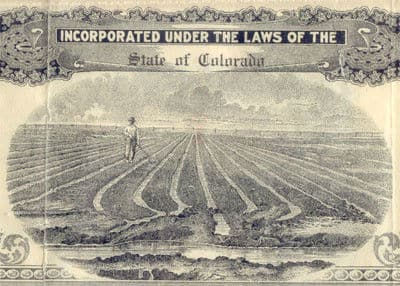
Following the passage of the 2007 Farm Bill, Internal Revenue Code §1031(i) specifically provided that mutual ditch or irrigation company stock could be used for a tax deferred like kind exchange for real property used in a trade or business or held for investment purposes. As a result, the gain from the sale of eligible mutual ditch company stock could be deferred if the other requirements of §1031 were met. Eligible stock was defined as any stock in a mutual ditch, reservoir, or irrigation company, as described in Code § 501(c)(12)(A). That section required at least 85% of the revenue into the company be from member assessments.
The 2017 Tax Cuts and Jobs Act strikes §1031(i). However, this does not mean that mutual irrigation company stock has lost its “like kind” treatment. Rather, the intent of Congress was to limit like kind exchanges of mutual irrigation company stock to states where the shares are recognized as representing interests in real property. Thus, an exchange of mutual irrigation company stock involves real property interests and qualifies as a 1031 exchange without the necessity of a special section specifically allowing it.
The Colorado Supreme Court, on a number of occasions, has recognized shares in mutual irrigation companies to represent interests in real property. For instance, the Colorado Supreme Court, in the seminal Jacobucci case, recognized that the shares in a mutual irrigation company actually represent interests in water rights. It has been the law in Colorado for a long time that water rights are interests in real property. Therefore, in Colorado, shares in mutual irrigation companies can still be subject of like kind exchanges.
Caveat: 1031 exchanges may not be available for some types of interests in water rights such as contractual rights. Before undertaking a specific transaction, you should consult your tax advisor.

